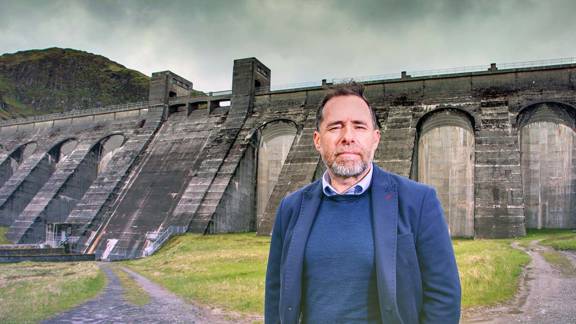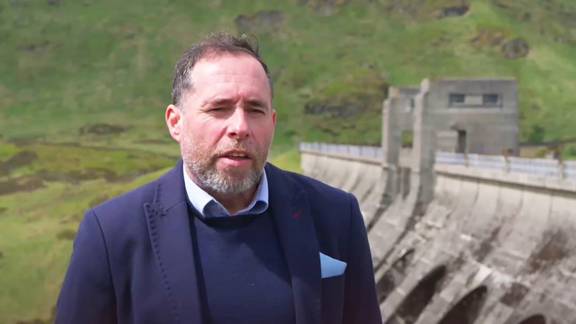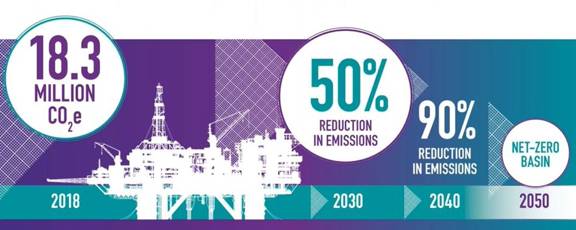A net zero oil and gas industry, is it possible by 2050?
28 Jul 2021 • 6 minute read
David Rennie, our Global Head of Energy explores the challenges and benefits of Scotland's transition to net zero emissions.

How does committing to net zero emissions work in a country that has an internationally renowned oil and gas industry? And what are the implications for other countries around the world? David Rennie, our Head of Head of Low Carbon Energy and former Global Head of Energy, explores the challenges and benefits of this transition.
A track-record of energy expertise, from oil and gas to renewables
Energy is one of Scotland’s biggest industrial sectors – built on a rich heritage of oil and gas engineering expertise. Just a few years ago, oil and gas was responsible for the vast majority of our energy needs. Now, as we initiate a transition to renewables, that mix is changing and will change even faster, although fossil fuels with decarbonisation will stay a part of it for some time. But there's no doubt that renewables, where the majority of our electricity supply now comes from, will see a big change in our energy mix, both in Scotland and across the globe.
The oil and gas industry in Scotland has been internationally focused for many decades, indeed over half of its supply chain sales are accounted for by international related activity.
It used to be said that “wherever there is and oil and gas project, there is sure to be a Scottish accent.” We want to maintain and improve this reputation. So, wherever there is an energy project, you’ll find a Scottish accent.
As we move towards a greener future, many traditional and exclusively oil and gas companies are indeed becoming ‘energy’ companies. And we’re here working closely with that company base, universities, researchers, and global investors to help those companies make that transition.

Climate change action that puts people first
Climate change and the need to transition to cleaner forms of energy is a global issue. It’s the right thing to do, both from a humanitarian and a sustainable economic perspective.
And there lies the challenge for Scotland. The oil and gas industry including its supply chain employs more than 100,000 people in Scotland (39% of UK oil and gas industry). Jobs in the industry are interesting and well-paid and continue to be important for Scotland.
However, as we reduce our dependency on fossil fuels and shift to alternatives such as offshore wind, hydrogen and more, how do we ensure those people that are currently working in oil and gas are not left behind?
There is a precedent here. In the 1980s, the British coal industry went into decline with the loss of thousands of jobs. This resulted in huge social and economic scarring in communities across the UK. In many cases, the impact is still being felt today.
We do not want to repeat this mistake with the oil and gas industry. We want to ensure we’re supporting the transition of people to new, fulfilling jobs into industries of the future.
Importantly, between 7000 and 45,000 jobs could be associated with combined carbon capture utilisation and storage (CCUS) by 2030. This is backed up by figures from the UK’s Hydrogen Taskforce opens in a new window that suggest that hydrogen production could generate £18 billion and support more than 75,000 jobs in the UK over the next 15 years.
The Scottish Government's Just Transition Commission opens in a new window has published a report committing to working with industry to:
- Pursue an orderly, managed transition to net zero that creates benefits and opportunities for people across Scotland
- Equip people with the skills and education they need to benefit from the transition
- Empower and invigorate our communities and strengthen local economies
- Share benefits widely and ensure burdens are distributed based on ability to pay
Michelin Scotland Innovation Parc opens in a new window is one example of an area dedicated to generating economic growth in Scotland that supports a fair and just transition to a net zero economy. This prime site offers opportunities for investors and businesses in sustainable mobility, clean transport, and low carbon energy.
How long will the transition take?
There is a difficult truth around the reality that we will need oil and gas for some time. But the reality is that the need for it will not disappear overnight. In fact, all predictions say that oil and gas is still going to be needed for the next 30 to 40 years. This is because there are many products, such as plastics and chemicals, where oil is the feedstock for production.
The term 'net zero’ means achieving a balance between the carbon released into the atmosphere, and the carbon removed from it. To reach net zero, the emissions from homes, transport, agriculture, and industry will need to be cut. In other words, these sectors will have to reduce the amount of carbon they put into the atmosphere. So, what we will see is a focus on reducing carbon emissions from industry. Industry has already committed to some significant targets in relation to reducing emissions and I'll touch on this later in the article.
But in some areas, like aviation, it will be too complex or expensive to cut emissions altogether. These ‘residual’ emissions will need to be removed from the atmosphere: either by changing how we use our land so it can absorb more carbon dioxide, or by being extracted directly through carbon capture, utilisation and storage (CCUS) technologies, or even by other technologies not yet invented.

Net-Zero Basin — Our Commitment (Source: OGUK)
Against a 2018 baseline, early reductions in offshore production emissions of 10% by 2025, 25% by 2027 and 50% by 2030 have been set to meet the sector’s aim of creating a 'net zero basin' by 2050. This will be supported by joint work to address the commercial and regulatory barriers to electrification of offshore platforms to realise these targets.
Given the continued need for oil and gas within this timeframe, we need to find ways to reduce carbon dioxide in the atmosphere as quickly as possible. To do this, we will need a lot of technological and innovative solutions.
The good news is that Scotland’s oil and gas expertise and experienced supply chain is extremely innovative and good at developing new solutions. Scotland is at an advantage in this respect to help speed up the change.
Within the energy industry itself, decarbonisation is well underway. Aberdeen-based Wood Group opens in a new window , for example, has aligned itself to the United Nations’ Global Sustainability Goals opens in a new window .
It’s reducing its own emissions, taking steps to lead energy transition, and is already looking at ways that automation and digital technologies can reduce emissions.
Scotland has the skills and engineering expertise that can develop or adapt new technologies such as:
- Hydrogen
- Carbon capture and storage – essential to achieve our target
- Solar
- Offshore wind
- Geothermal
- Renewable heat
- Batteries
- Energy systems
- Climate tech – for example, sucking CO2 out of the atmosphere
COP26 in Glasgow shone a spotlight on how Scotland can develop sustainable solutions. We want to talk with you about how we can shape a greener future together. Find out how we can support your company to make a smooth energy transition possible and explore opportunities for investment and trade with Scotland.
You might also be interested in
-
Energy investment and supply chain
Looking for the right location to set up and grow a sustainable business? Need suppliers or partners for your energy transition project? We can help.
-
Energy and low carbon industries
With the growing shift away from fossil fuels, Scotland can help companies to transition from non-renewable energy sources to more sustainable solutions.
-
Hydrogen energy future
Could hydrogen be key to Scotland achieving net zero? Scotland's hydrogen, energy and low carbon specialists Dave Holman and Meinolf Otto share their thoughts.
Get the latest updates from Scotland’s renewables and energy industries.
Need help?
Want to develop a more sustainable business? Let’s work together. Talk with our experts to get started.
